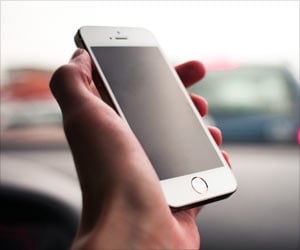
- Lack of attention and hyperactivity have often ascribed to be the traits of millions of people who are addicted to their phones. Scientists have now proved this with evidence.
- A two-week experimental study has shown that smartphone interruptions can cause ADHD-like symptoms. The research has figured out how the constant inflow of smartphone notifications can influence people’s minds!
- Constant digital stimulation might contribute to attention deficit which is a growing problem in the modern world.
- You can minimize the harmful effects of overstimulation by the use of smartphones just by turning your phones to silent mode and away from easy reach.
- About 95% of smartphone users check their phones during social gatherings
- 7 out of 10 people used them at work
- 1 in 10 checked their phones during sex
- On an average, a person spends 2 hours daily on their smartphones
During the first week of the study, 221 students at the University of British Columbia, Canada were drawn from the rest and assigned for a week to maximize their phone interruptions by turning the notification alerts on and keeping their phones within easy reach. And during the second week, the students were asked to minimize their smartphone’s interruptions by turning off their notification alerts. They were also asked to keep their phones out of easy reach.Towards the end of each week, the students were asked to answer a questionnaire which assesses inattention and hyperactivity when smartphone alerts were switched on.
The scientists observed that the participants who had notification alerts on with their smartphones on “Loud” or “Vibrate” mode showed more symptoms of hyperactivity and inattention. The results suggest that people might experience attention deficit hyperactivity disorder-like symptoms such as getting distracted, fidgeting, restlessness, difficulty in performing quiet activities and tasks, difficulty in concentrating and getting bored easily when trying to concentrate. By serving as an immediate source of distraction, smartphones could be contributing to these symptoms.
Constant Digital Stimulation by Smartphone Notifications:
The study has revealed that the culprit behind the increasing deficit of attention is the overstimulation by smartphones. The results suggest that even amongst those who have not been diagnosed with ADHD previously, the symptoms might occur due to this constant digital stimulation.
Here’s how you can reduce the negative effects of the digital stimulation:
- Stop being on the look out for your smartphone to ring or beep a notification
- Switch to silent mode so that you do not pay attention to notification alerts.
- Keep your smartphones out of sight and out of easy reach.
Source-Medindia









